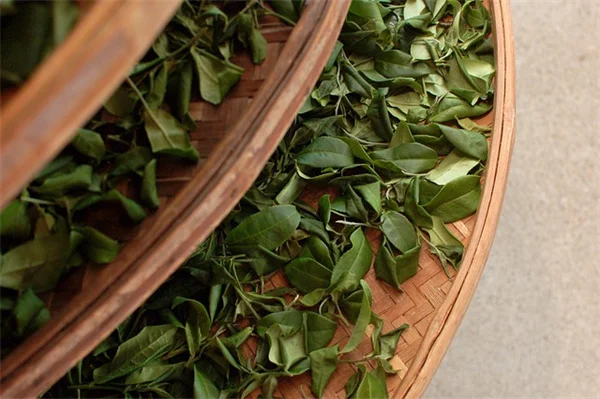Does Bleach Expire? Discover the Shelf Life and Storage Secrets You Need!
Can bleach expire? The straightforward answer is yes, bleach does expire! 🗓️ Over time, the active ingredient in bleach, sodium hypochlorite, breaks down into salt and water, reducing its effectiveness. You might be thinking, “So, how long can I keep my bleach before it loses its cleaning superpowers?” Don't worry, I’ve got you covered! In this article, we’ll dive into the shelf life of bleach, how to spot expired products, and even some pro tips on storage to ensure you’re always ready for your next cleaning mission. Let’s keep your cleaning game strong and make sure that trusty bottle in your laundry room is still doing its job! 💪✨
E.g. :Can Toothpaste Expire? Discover the Truth & Tips for Freshness!
- 1、Bleach 101: The Ultimate Guide to Keeping Your Cleaning Game Strong
- 2、CSI: Bleach Edition - How to Spot Expired Product
- 3、Bleach Storage Hacks From the Pros
- 4、Can You Use Expired Bleach? Let's Break It Down
- 5、Bleach Disposal: Don't Just Dump It!
- 6、Bleach Myths Busted!
- 7、Final Pro Tips for Bleach Masters
- 8、FAQs
Bleach 101: The Ultimate Guide to Keeping Your Cleaning Game Strong
Hey there! Let's talk about that trusty bottle of bleach sitting in your laundry room. You know, the one that magically transforms dingy whites into bright, fresh-looking clothes? But here's the million-dollar question: does bleach expire? 🤔
What's Actually in That Bottle?
Bleach is basically a superhero in liquid form. Its main active ingredient - sodium hypochlorite - works like a tiny army fighting stains and germs. But even superheroes have their limits! Over time, this powerful compound breaks down into plain old salt and water. That's why your year-old bleach might not pack the same punch as a fresh bottle.
Think of it like soda going flat - it's still technically soda, but where's the fizz? Same with bleach - it might look the same, but the cleaning power fades.
How Long Does This Cleaning Superpower Last?
Here's the deal:
| Bleach Status | Shelf Life | Effectiveness |
|---|---|---|
| Unopened | 1 year | 100% |
| Opened | 6 months | 50-75% after 3 months |
Pro tip: Write the purchase date on the bottle with a Sharpie. Future you will thank present you for this genius move!
CSI: Bleach Edition - How to Spot Expired Product
 Photos provided by pixabay
Photos provided by pixabay
The Sniff Test
Fresh bleach has that distinctive sharp smell that makes your nose hairs tingle. If your bottle smells more like weak tea than a swimming pool, it's probably past its prime. No smell = no power.
Visual Clues
Good bleach should look like slightly yellow-tinted water. If you notice:
- Cloudiness 🤢
- Dark yellow or brown color 🟡➡️🟤
- Particles floating around 🧪
...it's time to say goodbye. Your bleach has officially retired from cleaning duty.
Bleach Storage Hacks From the Pros
Location, Location, Location!
Would you store ice cream in the oven? Of course not! Same logic applies to bleach. Keep it in a cool, dark place like under the sink or in a pantry. Heat and sunlight are bleach's worst enemies - they break down the active ingredients faster than you can say "sodium hypochlorite."
 Photos provided by pixabay
Photos provided by pixabay
The Sniff Test
Every time you open that bleach bottle, a little bit of its power escapes (literally!). Here's how to win:
- Close the cap until you hear that satisfying click
- Wipe the rim clean
- Store upright to prevent leaks
Bonus: Your laundry room won't smell like a swimming pool 24/7!
Can You Use Expired Bleach? Let's Break It Down
The Safety Factor
Here's the good news: expired bleach isn't dangerous (unless you drink it, but c'mon, you're smarter than that!). The bad news? It's about as useful as a chocolate teapot for serious cleaning.
Fun fact: Some people use very diluted expired bleach to water plants (1 tsp per gallon). But check with your local gardening expert first!
When to Toss It
If your bleach fails any of these tests, it's time for the recycling bin:
- No bubbles when mixed with water 🛁
- Stains aren't lifting 👕
- It's been open for more than 6 months 📅
Bleach Disposal: Don't Just Dump It!
 Photos provided by pixabay
Photos provided by pixabay
The Sniff Test
Ever wonder why you shouldn't just pour bleach down the drain? Here's why: it can react with other chemicals in your pipes or the sewer system. Not a science experiment you want happening under your house!
Instead, try this:
- Dilute with 10 parts water
- Pour slowly down the drain with running water
- Alternatively, take it to a hazardous waste facility
Storage Until Disposal
Keep that expired bleach:
- In its original container 🏺
- Away from kids and pets 🚸
- Out of sunlight ☀️
Bleach Myths Busted!
"More Bleach = Better Cleaning"
Nope! Using extra bleach is like adding 10 scoops of coffee to your cup - it doesn't make it better, just more likely to cause problems. Stick to the recommended amounts on the label.
"All Bleaches Are Created Equal"
Actually, there are different types! Check out this quick guide:
| Type | Best For | Not For |
|---|---|---|
| Chlorine | Disinfecting, whitening | Colors, delicate fabrics |
| Oxygen | Colors, gentle cleaning | Strong disinfecting |
Final Pro Tips for Bleach Masters
Label Everything!
Get some masking tape and label your bleach bottles with:
- Purchase date 📅
- Opening date (if different) ⏰
- Expected expiration date ⏳
The Bleach Buddy System
Never use bleach alone! Always have:
- Gloves 🧤
- Ventilation (open windows) 💨
- Clean water for rinsing 🚰
Remember folks, bleach is powerful stuff when fresh and properly stored. Treat it right, and it'll keep your whites bright and your surfaces sparkling clean! ✨
To wrap things up, understanding whether bleach can expire is crucial for maintaining its effectiveness in your cleaning routine. Remember, unopened bleach can last up to a year, while opened bottles typically lose potency after about six months. If you notice any changes in smell or appearance, it might be time to toss that bottle and get a fresh one! 🗑️💧
As someone who's navigated the ins and outs of cleaning supplies for years, I can assure you that using expired bleach isn't a good idea. While it's not harmful, it won't give you the same cleaning power. So, I encourage you to keep track of your bleach's shelf life, and always store it properly to maximize its effectiveness. If you have any questions or tips about handling bleach, I’d love to hear from you! Let's keep this conversation going in the comments below. Also, don't forget to share this article with friends who might need a little bleach wisdom! 🧼✨
E.g. :YSK: Bleach expires and becomes almost useless : r/YouShouldKnow
FAQs
Does bleach expire?
Yes, bleach does expire! Unopened bleach can last up to a year, while opened bleach is effective for about six months. After that, its cleaning power diminishes significantly. To keep track, I recommend writing the purchase date on the bottle. This way, you won't be caught off guard by an expired product when you need it the most!
How can I tell if my bleach is still good?
There are a couple of simple tests you can do! First, give it a sniff. Fresh bleach has a strong, sharp smell. If it smells weak or like weak tea, it's likely expired. You can also visually inspect it—if it's cloudy, dark yellow, or has particles floating around, it's time to toss it. Remember, if it doesn't smell right, it's probably not going to clean right!
What's the best way to store bleach?
Storing bleach correctly is key to maintaining its effectiveness. Keep it in a cool, dark place, away from heat and sunlight—under the sink or in a pantry works great. Make sure the cap is tight to prevent air from getting in. By taking these simple steps, you can help ensure that your bleach stays strong for as long as possible!
Can I use expired bleach for cleaning?
Using expired bleach isn't dangerous, but it's not very effective either. Think of it as a chocolate teapot—it won't get the job done! If you find yourself with expired bleach, you might still be able to use it for light tasks or even in the garden if diluted properly. However, for serious cleaning, it's best to replace it with a fresh bottle.
How should I dispose of expired bleach?
Disposing of bleach requires care to prevent harmful reactions in your plumbing. Never just pour it down the drain! Instead, dilute it with ten parts water and pour it slowly down the drain while running water. Alternatively, take it to a hazardous waste facility. Always keep it in its original container and out of reach of kids and pets until you're ready to dispose of it properly!






